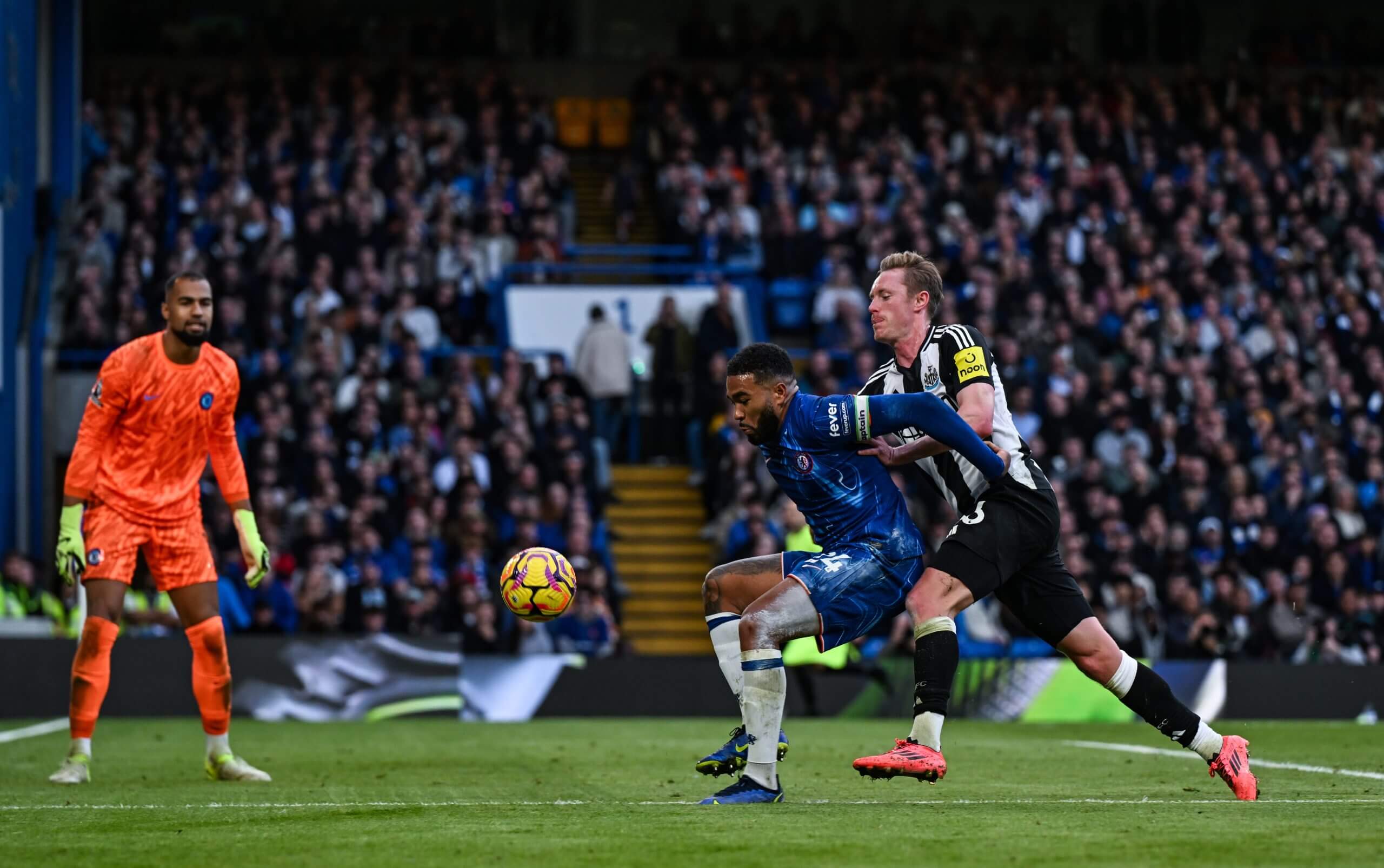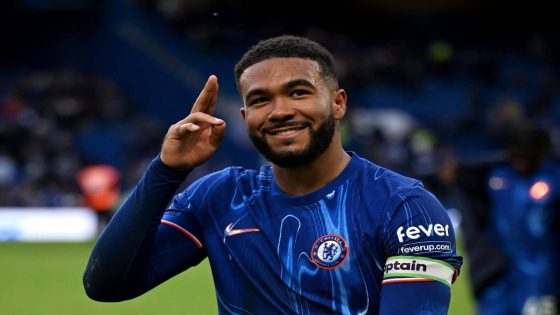Deep in the 98th minute at Stamford Bridge, Reece James momentarily lay face down in his own six-yard box with his left leg covered in the white paint of his own penalty area, having only just cleared the Chelsea crossbar with a frantic, improvised, diving defensive header.
The danger had passed, but it was anything but past. Newcastle loaded the Chelsea box for their final corner kick of a hotly contested game with every available giant and Levi Colwill’s friendly arms grabbed James, helping him to his feet before wrapping him in a motivational embrace accompanied by a few words of bellowed encouragement.
It was a sequence that enhanced both Cobham graduates’ captaincy credentials; credentials which, in the case of James, have been debated at considerable length in public since Maresca admitted after Chelsea’s midweek cruise against Panathinaikos that he “had expected more” from the 24-year-old in terms of leadership on and off the field.
Maresca attempted to soften the impact of his comments ahead of the visit of Newcastle.
“He’s doing well, he’s doing fantastic,” Chelsea’s head coach said of James in a pre-match interview with Sky Sports. “The only thing for us is that he has been injured. He’s so important for us. In terms of leadership, I ask (for) more from him. But I ask (for) more from a lot of them.
“Because when the team is so young, you need more from them. It’s not just about Reece. In general, they have to give one step forward in terms of leadership.”
Persistent injuries and untimely suspensions have severely limited James’ opportunities to grow into an on-pitch leadership role for Chelsea over the past 14 months. The fact he came through 107 intense minutes here (factoring in extensive additional time at the end of each half) without any obvious physical discomfort represents a significant positive step.
The last time he managed a full competitive game? April 18, 2023, the second leg of Chelsea’s comprehensive defeat against Real Madrid in the quarter-finals of the Champions League, shortly after Frank Lampard had taken charge of the team on an interim basis. Three coaches, 18 months and a lifetime ago in football terms.
Then there was Maresca’s latest tactical gambit: deploying James on the left of defence rather than the right, where Malo Gusto began but frequently inverted high into midfield. The role required him to be more conservative with his positioning when Chelsea attacked, changed the angles of his passes and even necessitated him popping up to make vital blocks in his own penalty area and several goal-line clearances.
For another footballer already trying to navigate challenging individual circumstances, it might have proven a discomfort too far. But James’ introspective nature masks a steely resolve. He performed with poise as well as physicality, limiting the industrious Miguel Almiron to one real chance in his 68 minutes on the pitch and enhancing Chelsea’s control in possession.

“I think it worked top,” Maresca said of James’ positioning. “We tried to do something where we moved Reece to the left side and Cole (Palmer) for the first time this season into the left pocket. The reason was to try to attack on that side and also to have Malo in the right pocket. I think in the end it worked really well.”
Part of showing personality on the pitch is being able to carry influence to different positions. It is a quality Maresca values highly in his system and one that Palmer exhibited every bit as much as James in the attacking third, scoring the winning goal with a shot from Maresca’s “left pocket” after dropping deeper to create Chelsea’s opener with perhaps the pass of the season.
Palmer will probably never be described as a vocal leader, but his demand of the ball and clear-eyed assurance, when he possesses it, oozes the personality Maresca is looking for. Others in this young team are also growing in stature: Colwill standing tall in defence next to Wesley Fofana fighting through significant knee pain, Moises Caicedo snapping into tackles, Nicolas Jackson relentlessly receiving passes under pressure and linking attacks.
“With Reece, with Cole, with all the squad… I said the other day because we are quite young, we need to build leaders,” Maresca added. “Levi was quite silent and now he’s always talking. Sometimes when you don’t have them, you need to build leaders. That doesn’t mean you are going to change people, but if they can improve on that, it’s good.”
With personality comes greater consistency. The only Premier League teams who have beaten Chelsea since February are Manchester City, Arsenal and Liverpool, with the other 20 games yielding 14 wins and six draws. The mounting evidence that stretches back to the final months of Mauricio Pochettino’s tenure suggests this is the fourth-best team in England — which, given that priority number one is Champions League qualification, is an encouraging sign.
Newcastle were always going to be a stiffer test of Chelsea’s burgeoning ability to take care of business against the rest in the Premier League and the home side’s heightened emotional state during the second half underlined their awareness of the importance of winning. Maresca was booked after sprinting furiously back to his seat on the home bench one too many times in protest at a decision from referee Simon Hooper and at the final whistle, Fofana and James were among several players in blue who collapsed to the ground in their own penalty area.
For the second time in the space of a few minutes, James was quickly picked back up and engulfed by team-mates. He may not yet be the most polished captain, but he is a popular one at Stamford Bridge and his stoic revival is starting to mirror Chelsea’s under Maresca.
(Top photo: Darren Walsh/Getty Images)





